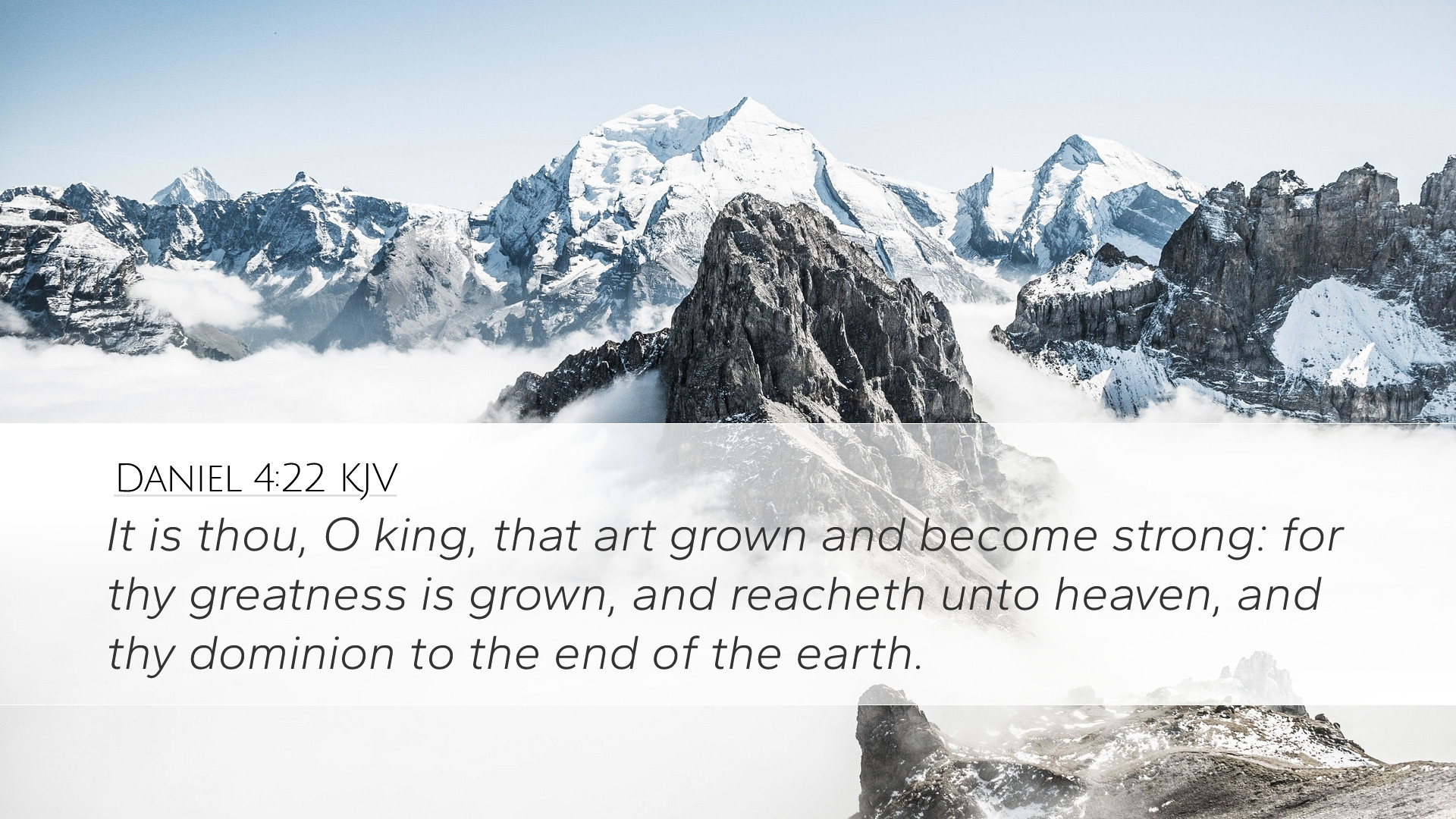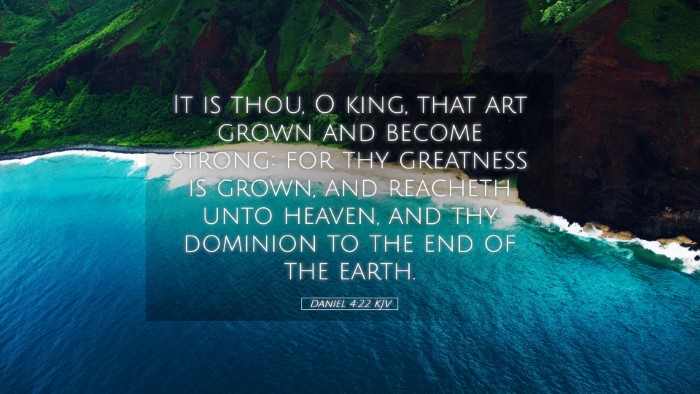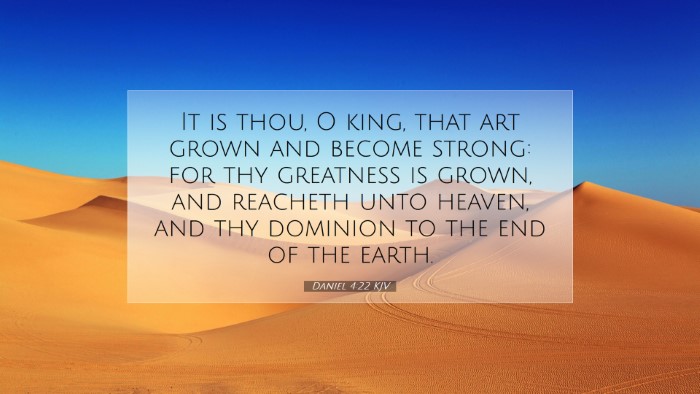Daniel 4:22 - Commentary Overview
Daniel 4:22 states: "It is you, O king, who have grown and become strong, for your greatness has grown and reaches to the sky, and your dominion to the ends of the earth." This verse is a pivotal moment in the narrative of Nebuchadnezzar's dream and its interpretation by Daniel. The passage unveils profound theological truths regarding divine sovereignty, human pride, and God's ultimate authority over nations.
Contextual Background
The Book of Daniel presents a narrative set in Babylon during the Babylonian exile. Chapter 4 focuses on King Nebuchadnezzar, who experienced a significant transformation following a dream that troubled him greatly. This chapter illustrates the tension between divine authority and human arrogance.
Verse Analysis
This verse forms part of the larger interpretation of the dream that Nebuchadnezzar had. Here, Daniel acknowledges the king's accomplishments but also hints at the underlying truth about his authority.
God's Sovereign Rule
According to Matthew Henry, this verse reflects the sovereignty of God over earthly kings. The greatness of Nebuchadnezzar is not merely a product of his own doing but is a result of God's will. God allows kingdoms to rise and fall, which serves as a reminder to all leaders that they are accountable to a higher authority.
The Vanity of Human Pride
Albert Barnes highlights the theme of human pride in this passage. Despite Nebuchadnezzar's impressive stature and dominion, his growth is a transient glory. He fails to acknowledge that it is God who has given him such power. This serves as a warning that pride comes before a fall, emphasizing the transient nature of human achievements.
God’s Judgment
Adam Clarke reflects on the judgment that follows this declaration. Daniel's interpretation of Nebuchadnezzar's dream includes a warning about the consequences of pride and arrogance. The king must recognize that his authority is granted by God, and failure to do so will result in divine retribution.
Theological Implications
- Divine Sovereignty: This verse highlights the theological notion that God is sovereign over the affairs of humanity. The greatness of any kingdom ultimately points to God's supremacy and providence.
- Human Accountability: Leaders and nations must recognize their accountability to God. The acknowledgment of God's hand in governance is essential for true wisdom and humility.
- Fall of the Proud: Nebuchadnezzar's story is an archetype of the fall that awaits those who exalt themselves against God. The narrative serves as an exhortation for humility among leaders.
Lessons for Today
In contemporary ministry and scholarship, Daniel 4:22 reminds us of the importance of humility in leadership. It's imperative for leaders, both in spiritual and secular domains, to remember that their authority and success come from God. This calls for an attitude of dependence and gratitude rather than self-sufficiency.
Practical Applications
- Embrace Humility: Leaders should consistently assess their motivations and pride, seeking to serve rather than dominate.
- Recognize God’s Authority: All achievements should be attributed to God, fostering a sense of gratitude instead of entitlement.
- Study of God's Sovereignty: Theological education should emphasize the sovereignty of God over all human affairs, framing discussions of leadership within the context of divine governance.
Conclusion
Daniel 4:22 serves as a solemn reminder that no matter how great one’s achievements, they pale in comparison to the sovereign rule of God. As pastors, students, and theologians reflect on this verse, it beckons a call to humility, accountability, and an unwavering recognition of God’s ultimate authority in their lives and ministries.


